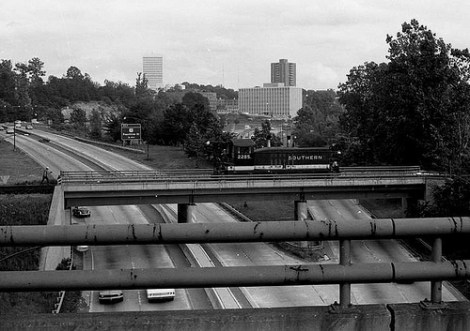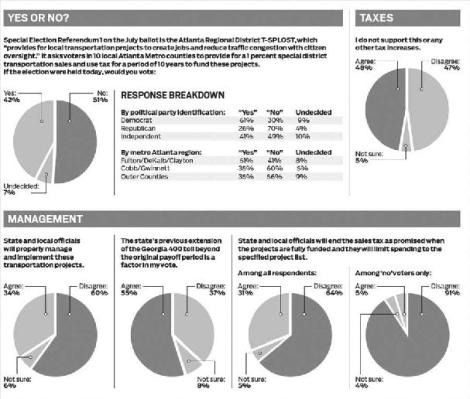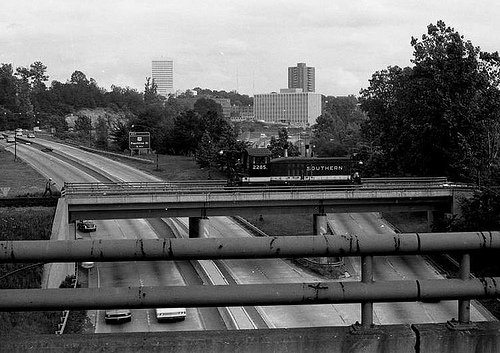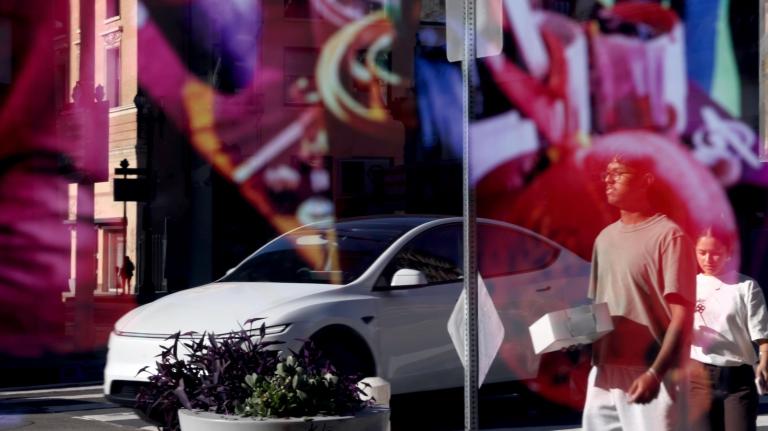
A highway near Atlanta, 1974. (Photo courtesy of Hunter-Desportes.)
In March, we told you about a proposal on the ballot in Georgia that would vastly expand Atlanta’s public transit system. Called the Transportation Special Purpose Local Option Sales Tax, or T-SPLOST, the proposal would levy a 1-percent sales tax over 10 years, providing $8 billion for transit projects. Proponents created an interactive map of the results, numerous maps and fact sheets, and a series of video flyovers showing what the investment would bring.
Transportation activists are on board, as are regional politicians like Atlanta’s mayor and the governor. Passing the elegantly named T-SPLOST would vastly improve transit access for Atlantans stymied since a 1971 vote rejected the construction of a regional mass transit system. For a city with the worst access to jobs via transit and a struggling economy, that would be huge.
And there’s almost no way it will pass.
The Atlanta Journal-Constitution polled early voters in the region and found that only 32 percent supported T-SPLOST. Early voters tend to be older and more conservative — but for a measure that needs 51 percent to pass, it’s a bad sign.
The paper offered results from a broader poll over the weekend. That survey suggests that 51 percent oppose the plan, compared to 42 percent in favor. Seven percent were undecided — but undecided voters tend to break in opposition to ballot initiatives. The real differentiation, though, came by region. Voters in urban Atlanta areas favor T-SPLOST by a margin of 51 to 41. In the outer areas, only 35 percent support it.

Poll results from the Journal-Constitution. Click to embiggen.
Which is similar — though not identical! — to the vote breakdown in 1971.
The city wants improved transit; outer areas don’t want to pay for it. It’s a problem as old as the Republic: how to get public support for something that doesn’t benefit everyone in the public equally. Not that there is no benefit from T-SPLOST outside of Atlanta — but the benefits of transportation multiply with population density. Extending a rail line or new highway to the suburbs necessarily reaches fewer people than doing so in more tightly packed area. So suburbs tend to be less inclined to support broad transportation packages. Today’s vote will very likely reflect that.
Maybe by 2053, Atlanta will have figured it out.
Update: This image says it all. (Via Chris Mims.)




